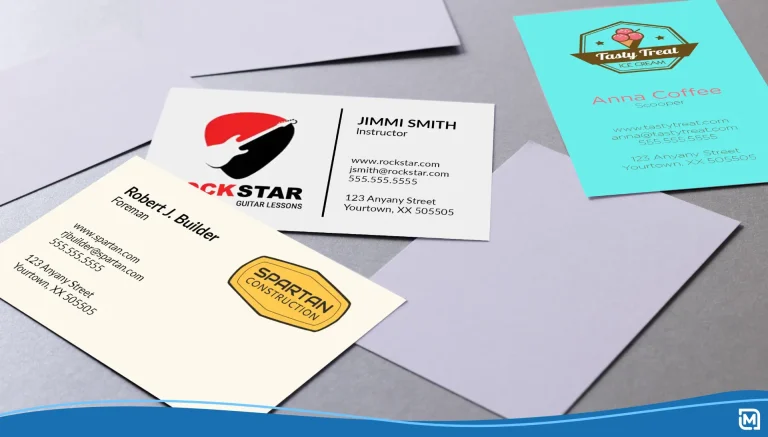Don’t be surprised if choosing a good business name is harder than you expected. After all, brainstorming is just the beginning. Your list of ideas quickly shrinks once you get rid of all the great names that are already taken. And then, you have to worry about branding, trademark laws, spelling snafus, and much more.
The right name will empower your business for years to come, so give yourself enough time to make a smart choice. Want a unique name that makes a positive impression on customers? Avoid these seven mistakes when naming your business.
1. Copying a well-known name
No one likes a copycat, so why go down that road? It’s all too common for people to copy coined business names, such as Spotify or Etsy. You end up with a million laughable clone names, like Craftify or Recruitsy. It may seem smart to borrow some brand power from established names. The problem is it makes you seem lazy and unoriginal. Not to mention, you could end up dealing with trademark infringement.
The whole point of branding is to get people talking about the great things that set your business apart. Names have strong associations. If you piggyback on another brand’s rep, customers will be disappointed if you can’t deliver similar quality.
2. Choosing a long name
Shorter is better when it comes to choosing a business name. Imagine 20 of your favorite companies. Most of them probably have names with fewer than 13 letters. Longer names are difficult to remember and tiring to look at. That’s why it’s hard to suppress a groan when you see legal firm names with five partners. Cooper, Smith, Duncan, Burns, and Goldman LLC doesn’t quite roll off the tongue. Aim to keep your business name short for two reasons:
- Everyone gets distracted easily these days. Don’t make people work hard to recall what your business does. When customers need a solution, you want them to come straight to you. Once customers conduct a broad search, you’re more likely to lose them to competitors.
- Chances are, you meet potential customers everywhere. You want the most forgetful person to recall your name even without a business card or brochure.
If you’re determined to go with a longer name, try coming up with a shortened version as well. Think CBS, NBC, or P&G.
3. Ignoring trademark laws
New companies are popping up everywhere. So, choosing a good business name is getting tougher every day. Checking for existing trademarks can help you avoid legal battles down the road. Keep in mind, there are federal and common law trademarks. A competitor with a similar name doesn’t have to own a registered trademark.
Let’s say there’s a shoe company called Walk Tall. Giving your business the same name may be fine if you’re an etiquette coach. But naming your business Walk Tall when you sell shoe inserts could be problematic. The company may have grounds to sue because your products could be confused with theirs. To be safe, use the Trademark Electronic Search System to spot potential conflicts. You can also hire an attorney who specializes in trademark infringement.
4.Thinking too small
Keywords have become a bit of a curse. You end up limiting yourself when you spend too much time trying to trick the search engines. Maybe, today you sell beds and mattresses. Tomorrow, you might sell dressers, dining room tables, and chairs. Naming your business Jefferson Bedding Co. might work now, but you may have to change it in the future.
Think long-term. Not every customer is familiar with your store. If you put a specific product in the title, many people will assume that’s all you sell. Keywords can be an important part of a business name, but always choose broad over narrow. Apple started as Apple Computer, Inc. But as you know, the company grew to create a wide range of electronics. Apple smartly ditched the word “computer” when it became too limiting.
5. Choosing complicated spelling
Don’t tie your brain in knots trying to come up with a unique spelling. The average adult reads between a fifth and eighth-grade level. The last thing you want to do is confuse people with a name they can’t say or write easily. If you’re using common words, customers will choose the most obvious spelling. Now imagine what will happen if they try finding you in a search engine and 20 other businesses come up first. You will lose valuable business, and the customer still won’t know how to find you.
When using coined words, make the spelling intuitive. Weebly, Pepsi, Ebay, and Panera are all made-up names, but you can easily guess how they’re spelled.
6. Brainstorming in isolation
Starting a business is about sharing your products with the world. That’s why you should consult people you trust when you have a strong list of names. You see and hear things one way. Other people catch things you don’t. Even big companies run into trouble when their creative teams overlook alternate meanings or hidden words. With this in mind, make sure you:
- Say names aloud at various speeds. When mashed together, words can unintentionally send the wrong message.
- Write names down without spaces. When you pick a domain, you don’t want the joined words to contain alternate meanings.
- Check for words in other languages. If you work with international customers, make sure your business name isn’t offensive in another language.
At the same time, think about your customer base. Going with a risqué or funny name can work with the right audience. But if you work with very conservative customers, get their feedback before you invest money in a name they might find offensive.
7. Overthinking the back story
Don’t go overboard trying to inject a lot of meaning into your business name. Branding takes a lot of effort, but it should look simple to customers. You might have a great story to tell about your business, but customers won’t care. Customers want to know what you can do for them. Imagine promoting your business in person. A complicated name takes too long to explain, and most people will lose interest in a few seconds. Symbolism is great. Look at Nike, Jaguar, and Puma. But a symbolic name should send a clear message right away without a long, winding backstory.
Even when the perfect name pops up in a quick burst of inspiration, make sure it meets all your criteria. Choosing a good business name can be time-consuming, but the right choice should be built to last.
> If you’re choosing a business name, think about how it will look in a logo design. Take a look at some of our logo templates to get some ideas!







